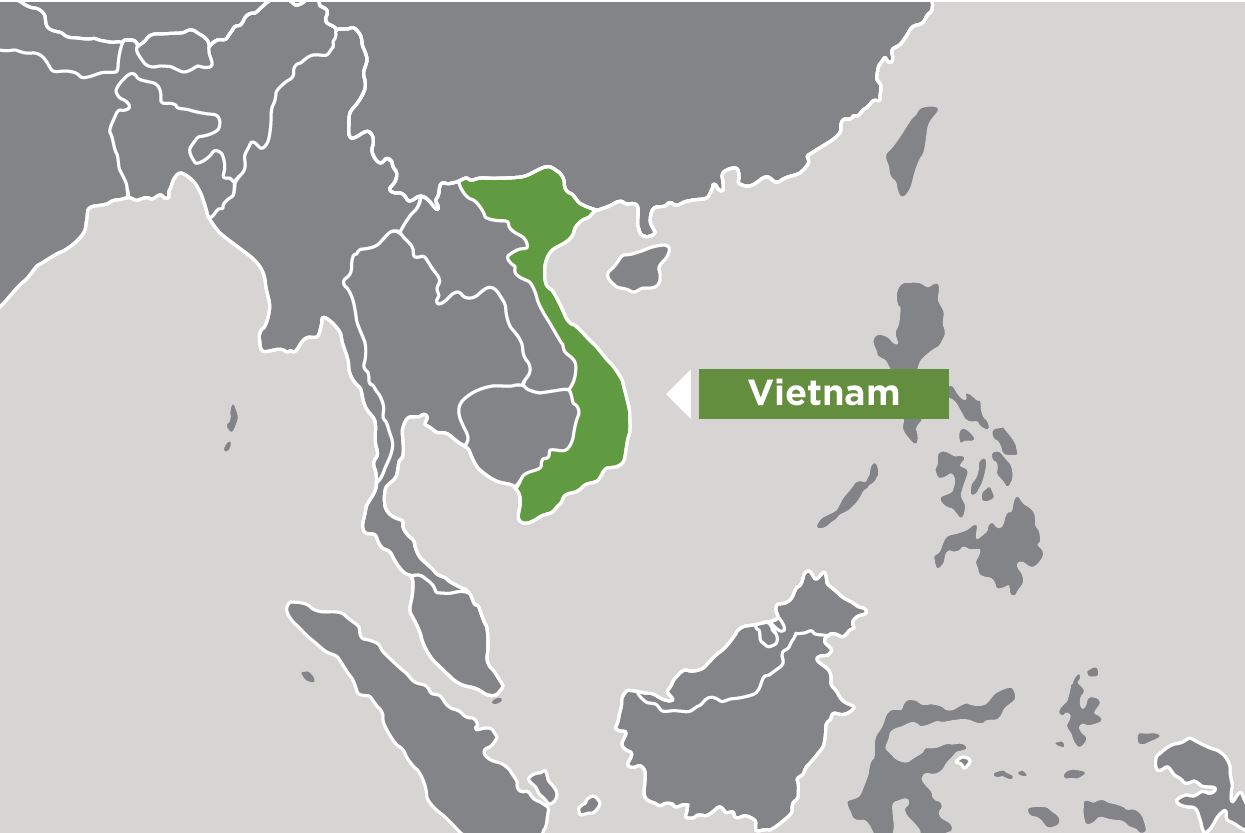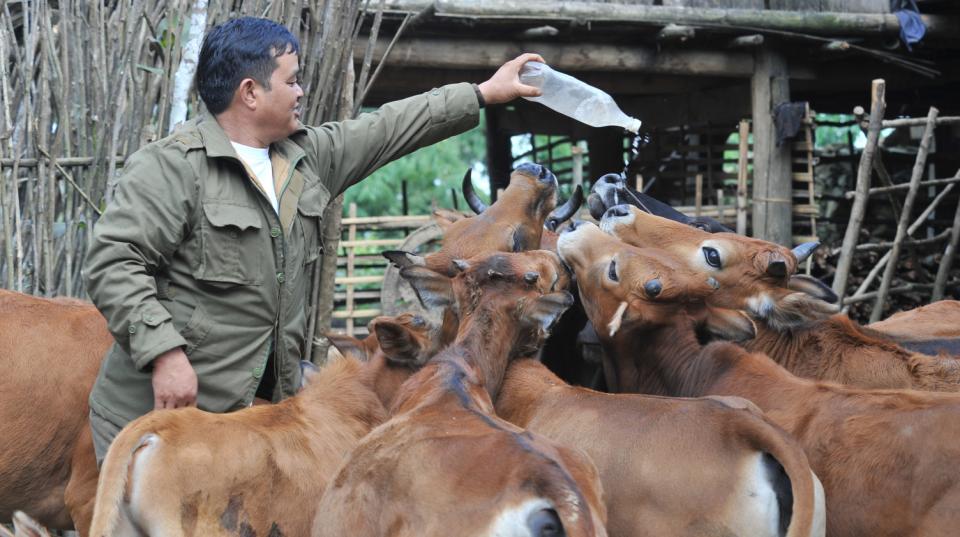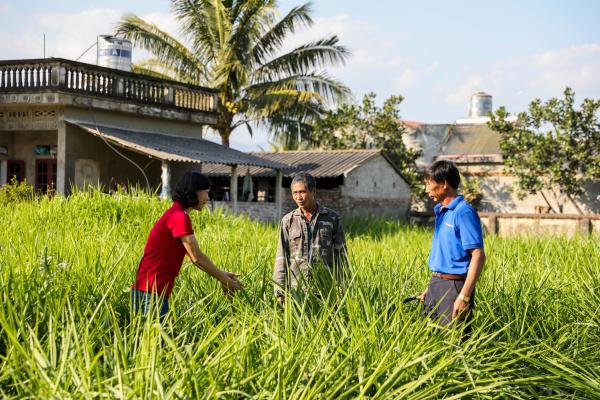Overview
This project aimed to improve the income of smallholder cattle producers through intensification of beef cattle production and increased market linkages in mountainous crop-livestock systems in the north-west of Vietnam.
Vietnam’s north-west is one of the country’s poorest regions, with 80% of households’ income from agriculture and forestry. Livestock production is a pathway out of poverty. Increased beef cattle production in the highlands is seen as a priority to alleviate poverty and address environmental issues of intensified cropping, such as erosion.
Increased production in the region is constrained by feed and forage availability and animal exposure through long cold winters. Grazing-based livestock systems compete for land with expanding crop production. This in turn has increased soil erosion and sedimentation of waterways, making the current crop-livestock system unsustainable.
Current cattle husbandry practices and sales are linked to culture, ethnicities and the isolation of communities. This isolation is often synonymous with poor linkages to urban markets, misunderstanding of demand/supply dynamics and limited information exchange along the beef value chain. Smallholders are not capitalising on increased demand.
Project outcomes
- Adoption of innovative practices by farmers.
- Increased growth and reproduction of cattle, and increased sales will improve household incomes by at least 32%.
- Improved market understanding and linkages between farmers and traders.
- Profitable cattle feeding systems, integrated with cropping.
- Improved environmental sustainability.
- Improved gender equity and education for children.
- Increased market access and understanding of demand and opportunities.
- Improved information exchange leading to a resilient beef value chain.
- Increased technical knowledge among farmers on integrating cropping and livestock, forage and feed production and animal management.
Summary of outcomes to date
2021–22
- This project is in its fifth year and has disseminated research results through international and national publications, including an international article (English), 5 national articles (Vietnamese), two guideline book, 13 media articles, 17 undergraduate and master theses, as well as many presentations and technical factsheets, all in Vietnamese.
- A total of 10 interest groups with diverse membership have been maintained and empowered with several common activities around growing forage grasses, biomass maize, making silage, increasing herd size, and visiting demonstration farms with the support of VNUA and CASRAD and the help of NIAS and DARD.
- The project team has also facilitated exchanged /shared practices between farmers/members of COOP in Tuan Giao and Dien Bien districts, and local authorities with members of IGs. The Dien Bien cooperative has successfully accessed government funds to develop a beef value chain with the help of Dien Bien DARD and related local authorities with linkages established between IGs, Dien Bien COOP, Slaughterhouse and Hoa Ba supermarket to introduce beef from COOP and IGs.
- During the project, intercropping methods have been trialled, with forage production and feed processing introduced to more than 400 households within the study villages and farmers in the villages and communes and districts surrounding. The solution of better utilization of crop by-products by processing as feed for fattening beef cattle under household and farm conditions in Dien Bien province was approved (and recognised) as an innovation by People’s Committee of Dien Bien province in April 2021.
- The Dien Bien DARD successfully awarded a strategic funding by People’s Committee of Dien Bien province for a program of ruminant production development.
- The project team has closed interaction with other projects in the regions (e.g.: Maize project, AFLI 2, ASSET, and Li-chan).







